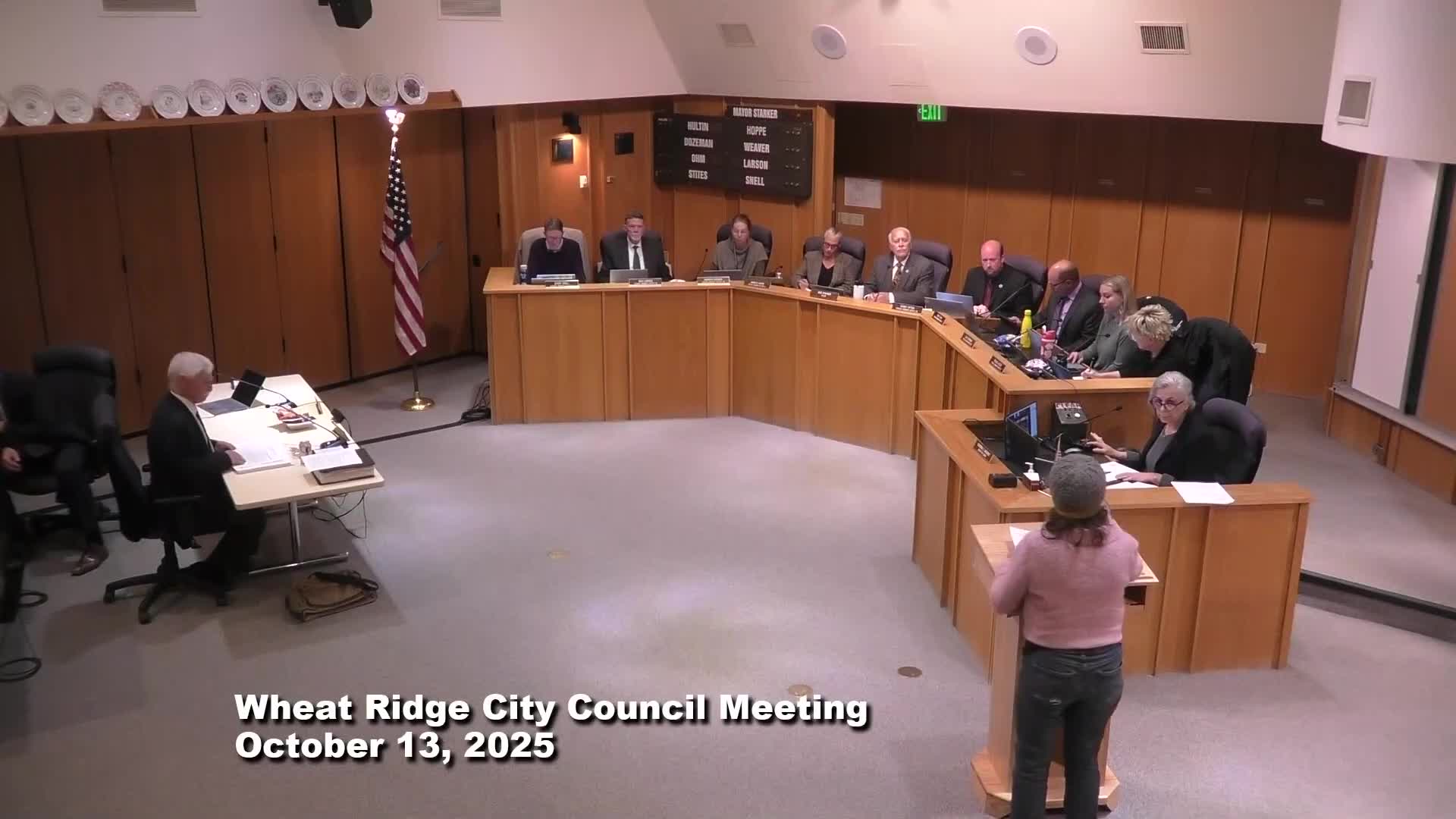Wheat Ridge resident appeals rooster ruling as council readies ordinance update on backyard animals
Get AI-powered insights, summaries, and transcripts
Subscribe
Summary
A longtime Wheat Ridge property owner said a municipal court nuisance conviction over her rooster shows current code enforcement leaves roosters effectively banned; councilors said an updated ordinance clarifying rooster rules has been drafted and will be considered soon.
Becky Blackett, a Wheat Ridge resident who owns multiple rental properties, told the City of Wheat Ridge City Council on Oct. 13 that she pleaded guilty in municipal court to creating a neighborhood nuisance after neighbors complained about her rooster’s crowing.
"The city prosecutor persuaded me to plead guilty to creating a neighborhood nuisance, even though I had already voluntarily limited the rooster's outdoor time to between 9AM and 5PM," Blackett said. "...even if I let the rooster outside for only 10 minutes a day, any neighbor complaint about crowing could still result in another nuisance citation regardless of the time of day or decibel level of the crow."
Blackett said she met setback and housing requirements for poultry under the city code (cited as Section 26‑606 in public comment) but that enforcement practices make ownership “nearly impossible for some residents.” She asked the council to adopt clear, measurable standards such as decibel limits or specified quiet hours so enforcement would be uniform.
Councilmembers discussed the separation between the municipal court process and legislative action. City Attorney (and staff) explained that court decisions on citations are judicial and appealable to county court, while the council can change the municipal code through legislation. Staff told the council an ordinance clarifying the city's rules on roosters and nuisance animals has been drafted and will be brought forward for consideration shortly; the draft contemplated allowing roosters and defining allowed numbers and administrative enforcement options as an alternative to the slower judicial process.
Councilmember Amanda Weaver asked how a resident who loses in municipal court could seek relief; staff reiterated that the individual can appeal the municipal court decision to county court and also that the council had previously given direction at a study session to draft a clarifying ordinance. Staff said the draft ordinance is in review and should be ready "in the next meeting or so."
Officials acknowledged the tension Blackett described—where enforcement hinges on a neighbor complaint—and said the municipal judge makes fact‑specific rulings in individual cases. Several councilmembers said a balanced, enforceable code should reduce arbitrary outcomes; staff suggested an administrative enforcement option could make enforcement faster and more consistent if council adopts it.
No ordinance was adopted on Oct. 13; councilmembers said they expect the draft ordinance to return for formal consideration at a future meeting.
